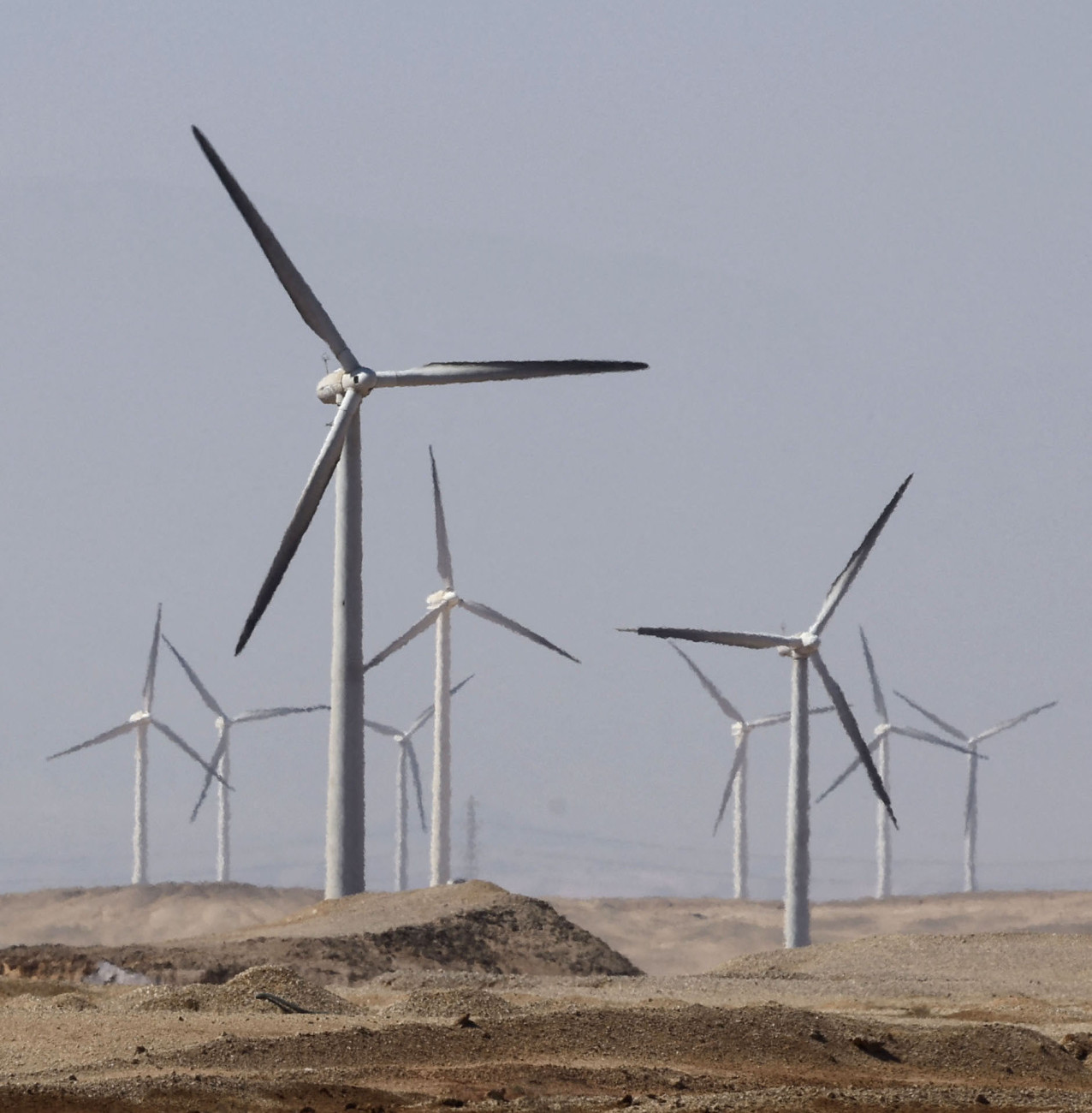
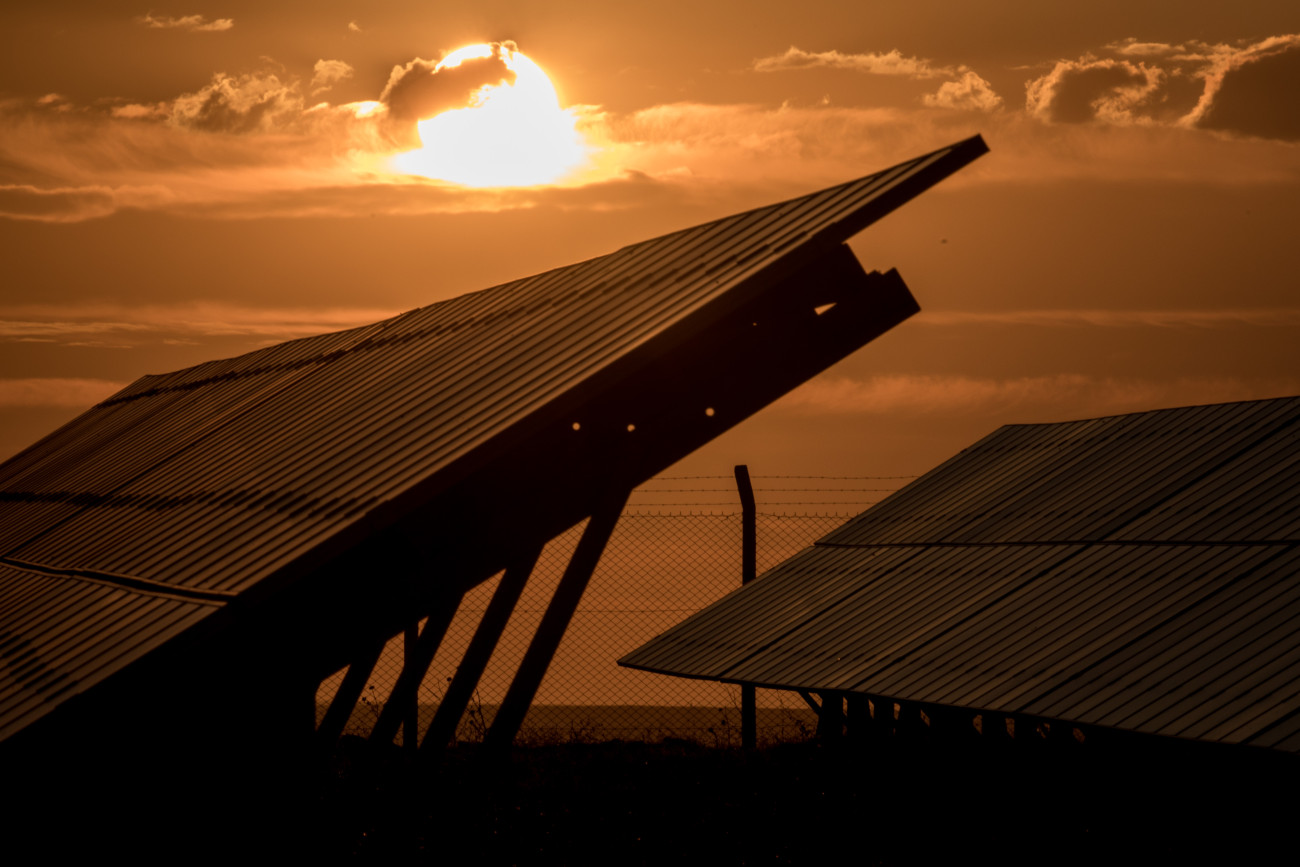
Summary
As environmental challenges become a priority for countries across the Middle East and the Mediterranean, this creates new opportunities for regional environmental cooperation, including between Israel and its neighbors. Despite being limited in scope and facing several key obstacles, regional cooperative endeavors are taking place, including on both the bilateral and multilateral levels, and efforts to sustain and expand them are underway. This new report, written under the auspices of the Israel Climate Forum, addresses the importance of regional environmental cooperation in the Middle East and Mediterranean, examines the scope of such cooperation between Israel and its neighbors, and spells out opportunities, obstacles, and recommendations for increased coordination and joint action, including the role the U.S. and Europe can play.
Executive Summary
Environmental challenges are becoming a priority for countries in the Middle East and the Mediterranean and are increasing cross-border cooperation — including between Israel and its Arab and Muslim neighbors. Such cooperation assists in tackling climate change through a regional and global lens, and also fosters regional stability, maintains and expands circles of peace and normalization, and increases prosperity and economic development.
This trend, together with progress in Israel-Arab relations following the Abraham Accords, creates new opportunities for regional environmental cooperation between Israel and its neighbors. These opportunities' full potential cannot be realized before there is a breakthrough toward Israeli-Palestinian peace. Moreover, the composition and policies of Israel's current government pose additional challenges to Israel-Arab relations, and led existing cooperation to slow down. Nevertheless, and despite being limited in scope, regional cooperative endeavors are taking place and efforts to sustain and expand them are underway.
The convening of the COP27 and COP28 summits in the Middle East, in Egypt and the United Arab Emirates respectfully, helps such cooperation evolve. In addition, Israel and some Arab states (such as Morocco and the UAE) have signed bilateral agreements for cooperation on environmental-related issues; minilateral endeavors, like the Israel-Jordan-UAE water-electricity swap deal and the Israel-Morocco-EU water dialogue, have been launched; and, multilateral mechanisms and initiatives — including the Union for the Mediterranean, the East Mediterranean Gas Forum, and the East Mediterranean & Middle East Climate Change Initiative — enable Israel and its neighbors to jointly engage in tackling climate change.
Various Israeli ministries and government bodies have been involved in these efforts over the last few years, some of which have relevant experience and knowledge, while others are new to the field. They identify a range of opportunities for enhanced regional cooperation, as well as a broad set of challenges that need to be overcome. These are being explored and tackled by the Israeli Climate Forum, established in 2021 by President Isaac Herzog, as part of his vision of a "Renewable Middle East."
The international community also has an interest in fostering regional environmental cooperation between Israel and its neighbors, with a diplomatic outlook to advancing Israel-Arab normalization and Israeli-Palestinian peacemaking. The U.S. and Europe are best positioned to advance this, and can do so by providing third-party support to countries seeking to cooperate, focusing on the tangible benefits of environmental cooperation, including the Palestinians in relevant regional endeavors, encouraging multilateralism and inclusivity, and investing in civil society.
Introduction
The growing global importance attributed to climate change and the environment has prompted Israeli government officials to devote increasing attention to such matters. Similar processes are underway all over the world, including in the Middle East and the Mediterranean, regions that are especially sensitive to the impact of climate change. Indeed, the ramifications of climate change are already evident there: We can discern a clear trend of rising temperatures and extreme heatwaves, a decline in the amount of precipitation, and an increase in the number of extreme weather events. Significantly, two Middle Eastern countries — Egypt and the United Arab Emirates — were selected to host the U.N. Climate Change Conferences (Conference of the Parties, COP) in 2022 and 2023.
In parallel, substantial progress has been made in recent years in relations between Israel and some Arab countries. The signing of the Abraham Accords in 2020 and the establishment of the Negev Forum in 2022 enhanced and broadened regional cooperation, including on climate change and environmental issues, tapping into the unrealized potential in these fields. Nevertheless, a specific regional working group on climate and environmental issues has not yet been set up as part of the Negev Forum, and meaningful direct cooperation between Israeli and Arab ministries of the environment does not yet exist.
Israel has become more involved in regional frameworks to tackle climate change and increased its bilateral cooperation on this front with states in the Middle East and the Mediterranean, although such cooperation remains limited. Various Israeli ministries and government bodies have been involved in these efforts in recent years, some of which have relevant experience and knowledge of regional affairs, while others are new to the field. Israeli President Isaac Herzog has called for regional environmental cooperation during the visits he has carried out to neighboring countries since taking office in June 2021. Since he established the Israeli Climate Forum in October 2021, President Herzog has repeatedly presented a vision of a "Renewable Middle East" based on an inclusive regional framework.
The coming to power of the Netanyahu government in December 2022 — its composition, declared intentions, and initial policies — has led to a slowing down of Israel-Arab relations. This has also further limited the scope of environmental cooperation between Israel and its neighbors.
As part of the Israeli Climate Forum's efforts to increase cooperation between Israel and its neighbors, at the end of 2022 and in early 2023 we conducted a series of interviews with Israeli government officials, seeking to map out existing cooperation on climate change and the environment, identify obstacles and opportunities, and devise recommendations to broaden cooperation.
Interviews were conducted with the Ministry of Foreign Affairs, the Ministry of Regional Cooperation, the National Security Council, the Ministry of Environmental Protection, the Ministry of Energy and Infrastructure, the Ministry of Economy, the Ministry of Agriculture, and the Ministry of Health. This paper summarizes the main insights from these interviews and spells out pathways for the U.S. and Europe to further advance regional environmental cooperation between Israel and its Arab and Muslim neighbors.
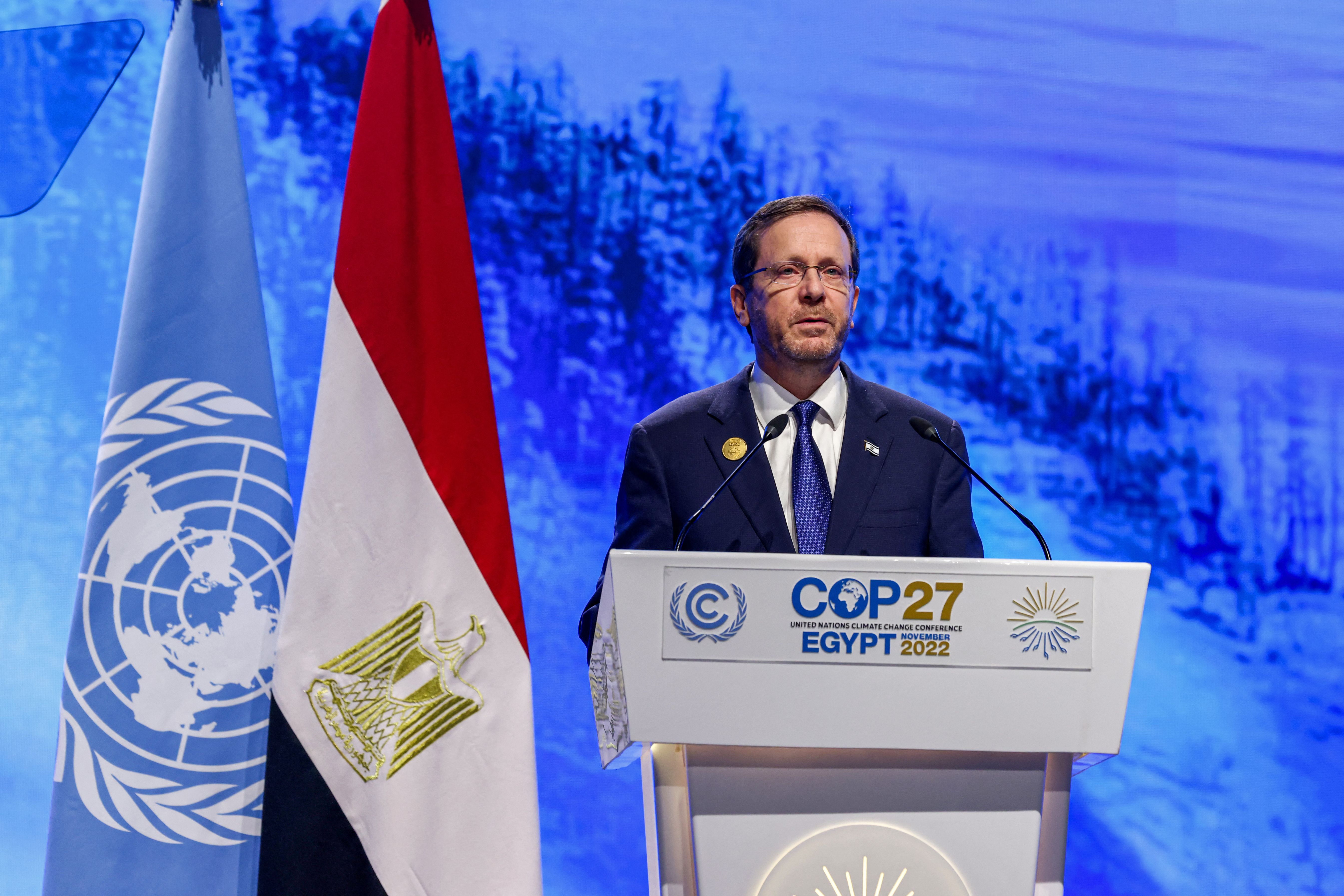
Israeli Objectives
Israeli government officials emphasize a number of objectives related to regional cooperation on climate change and the environment with Arab and Mediterranean countries:
-
Mapping and tracking the significance of regional and global changes that have environmental ramifications for Israel;
-
Analyzing and understanding climate-related needs of regional countries, and seeking to align them with Israel's strengths;
-
Following up on agreements already signed with Israel's Arab neighbors to generate meaningful content and practical measures, in sectors such as energy, environment, and agriculture;
-
Investing in advancing cooperation with Egypt, Jordan, and Bahrain, with which Israel has diplomatic ties but where public and governmental opposition to links with Israel is widespread (compared to the UAE and Morocco). Israel hopes that mutually beneficial environmental cooperation with these countries will help strengthen official ties, improve the popular image of the peace and normalization agreements, and overcome negative public attitudes toward cooperation with it;
-
Leveraging climate change and the environment to create indirect cooperation with those in the region with which Israel is still in conflict, such as by means of joint membership in multilateral frameworks;
-
Deriving the greatest possible results from the COP summits in the Middle East, in terms of the scope of Israel's participation and the level of its involvement in regional initiatives and processes;
-
Advancing the concept of "regional climate resilience," based on the assumption that if the region is not resilient on a broader level to the climate crisis, even countries that are well-prepared will face difficulties and threats.
Areas of Cooperation
On a practical level, regional cooperation on climate change and the environment, as well as on energy, does exist, although it is limited (aside from that on natural gas). Such cooperation is mainly in the following areas:
-
Exporting natural gas to Egypt and Jordan via pipelines; to Europe through liquefaction facilities in Egypt; and possibly also to Turkey;
-
Advancing the water-electricity Israel-Jordan-UAE swap deal, which includes the production of solar energy in Jordan and the desalination of water in Israel, with the help of the UAE;
-
Conserving the corals in the Gulf of Eilat via international organizations (such as UNESCO and the Transnational Red Sea Research Center in Lausanne, Switzerland), in possible cooperation with Egypt, Jordan, and Saudi Arabia;
-
Promoting the joint development and launch of a satellite to monitor climate conditions, in cooperation with the UAE, that will provide warnings about expected climate crises and trace the progress of desertification;
-
Engaging in dialogue with Morocco concerning green water and energy, with the involvement of the EU and under its patronage;
-
Examining, through a Negev Forum working group, potential regional public health risks that the climate crisis is likely to cause, and fostering cooperation between health systems in neighboring countries, such as Egypt, Jordan, and the Palestinian Authority, to manage possible future climate-related disasters;
-
Cooperating, for example with Jordan and Gaza, against the spread of water-borne, food-borne, and vector-borne diseases that are exacerbated by climate change, including seeking solutions for the pollution of shared water sources;
-
Advancing renewable energy initiatives, in particular solar and wind energy, with countries as Morocco, Jordan, and Turkey;
-
Improving food security and developing a blue economy, through cooperation with Jordan, the UAE, Egypt, and Morocco;
-
Selling Israeli agricultural, water, fishing, and desertification technologies, especially to Gulf states and Morocco.
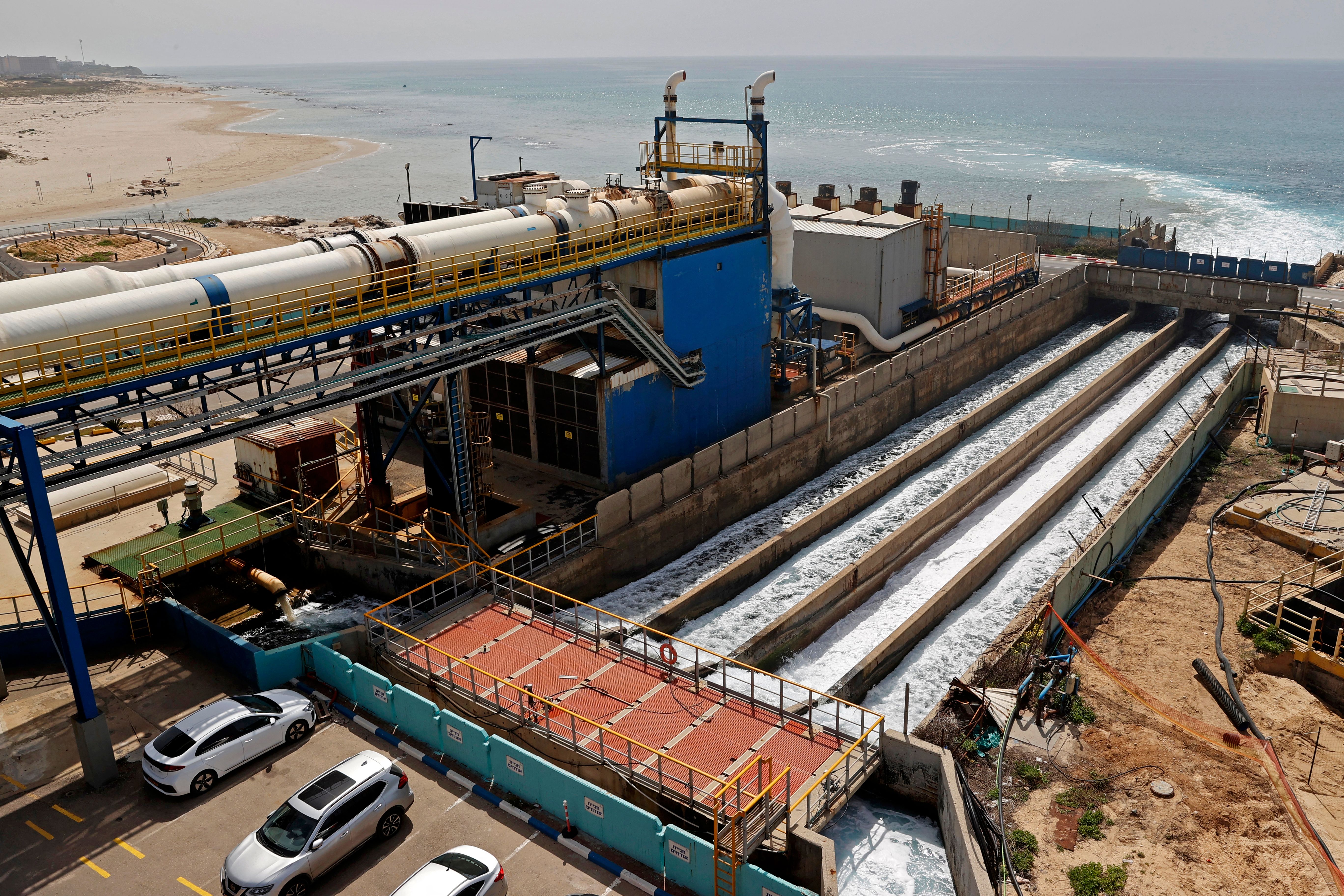
Bilateral Cooperation
After signing the Abraham Accords, most government ministries in Israel focused on developing links with the UAE and Bahrain. Mutual visits took place and memorandums of understanding were signed. The UAE's main environmental interest is in food security and the blue economy, while Bahrain is mostly focused on issues concerning water, agriculture, and desertification. However, according to Israeli government officials, despite agreements made on these issues, implementation — on the Gulf side — is very slow, and many understandings remain solely on paper. With Bahrain, no practical progress had occurred on climate-related issues by the time of the interviews. As for the UAE, where the economic dimension is of great importance, it is difficult for Israel to compete with the various states and companies active there. This limits the extent of joint initiatives that reach implementation.
Cooperation with Morocco, with which a normalization agreement was also reached in 2020, lags behind. Israeli officials identify great potential for environmental cooperation with Rabat, but they also mostly admit that this has not yet been prioritized, and that they lack the contacts, personnel, and budgets necessary to make the most of the existing potential. While there is some joint Israeli-Moroccan environmental cooperation underway, it is largely conducted by private companies and civil society, and not by the two governments. Morocco is mainly interested in issues regarding water, agriculture, fishing, desertification, and wind energy, as well as purchasing Israeli technologies in these fields.
The two countries are located on the shores of the Mediterranean, enjoy proximity to Europe, and have a similar climate. This creates shared interests but sometimes also generates competition when it comes to exports. In the eyes of various Israeli ministries, Morocco should be a priority for Israel as it looks to invest in advancing regional environmental cooperation. A series of visits to Morocco by several Israeli ministers in May-June 2023, including Minister of Environmental Protection Idit Silman, indicates that Israel is stepping up efforts in that direction. This is reinforced by the fact that the government dispatched an Israeli agricultural attaché to Morocco, a position that exists only in a few locations around the world.
Likewise, Israeli officials perceive much potential for environmental cooperation with Turkey, but most say that they are not yet in contact with their counterparts there and that little cooperation is currently taking place. They do believe that an improvement is possible considering the broad cooperation that existed in the past. The current limited cooperation is influenced by a decade of tense relations, during which Israel also developed cooperation with Turkey's regional rivals: Egypt, Greece, Cyprus, and the UAE. Recently, Turkey has been working to improve its relations with the UAE and Egypt, and to a limited degree also with Greece. Simultaneously, Israel-Turkey normalization was successfully completed in 2022, generating conditions amenable to improving business cooperation and increasing the volume of trade. The fact that an Israeli economic attaché was dispatched to Turkey and that the two countries have already begun cooperating in the field of wind energy testifies to a positive trend. Nevertheless, as with the situation with Morocco, lack of capacity among Israeli ministries prevents the realization of the full potential of ties.
With Egypt and Jordan, neighbors with which Israel signed peace treaties decades ago, the Israeli government openly seeks to develop cooperation. However, the possibilities of doing so are limited by political constraints in both countries.
Environmental cooperation with Jordan ebbs and flows. It exists at the government level with regard to natural gas exports and in the framework of the tripartite water and electricity swap project with the UAE, which was signed by the Bennett-Lapid government but is stuck since the coming to power of the Netanyahu government. There are other instances of cooperation, led by non-governmental organizations, such as EcoPeace and the Arava Institute for Environmental Studies, or municipalities, like the municipal and regional councils of Eilat. However apart from the modest government support that such organizations receive, the Israeli government is not involved in these projects.
With Egypt, by contrast, several Israeli ministries report that progress has been made, despite the traditional difficulty in developing cooperation outside of the realm of security. Israel's Ministry of Energy cites a close and thriving relationship with the Egyptian Ministry of Petroleum and Mineral Resources, and it is developing initial contacts with the Ministry of Electricity and Renewable Energy regarding natural gas exports and the development of gas transfer infrastructure that will be able to carry hydrogen in the future. Likewise, Israel's Ministry of Economy and Industry also identifies greater willingness on the Egyptian side to pursue cooperation. The Ministry of Agriculture, however, has yet to succeed in this regard, despite its desire to cooperate with Egyptian counterparts on the development of the Sinai Peninsula and the reactivation of the joint bilateral agricultural committee.
There is almost no environmental cooperation on the governmental level with the Palestinian Authority. Some ministries have made attempts to promote this and were rejected by the Palestinian side for political reasons (for example, in the field of waste management in Palestinian villages), while others do not have any interest or do not see any likelihood of success. The Israeli Civil Administration in the West Bank has occasionally managed to achieve ad-hoc cooperation with Palestinian municipalities. On the multilateral level, Israel and the Palestinian Authority are both members of the East Mediterranean Gas Forum (EMGF) and the Union for the Mediterranean(UfM), which provide a regional umbrella for engagement on topics relating to climate change and the environment but also constitute an arena for political disagreements. Beyond this, as is the case with Jordan, there are examples of Israeli-Palestinian cooperation led by civil society organizations, although limited in extent and mostly without Israeli government involvement.
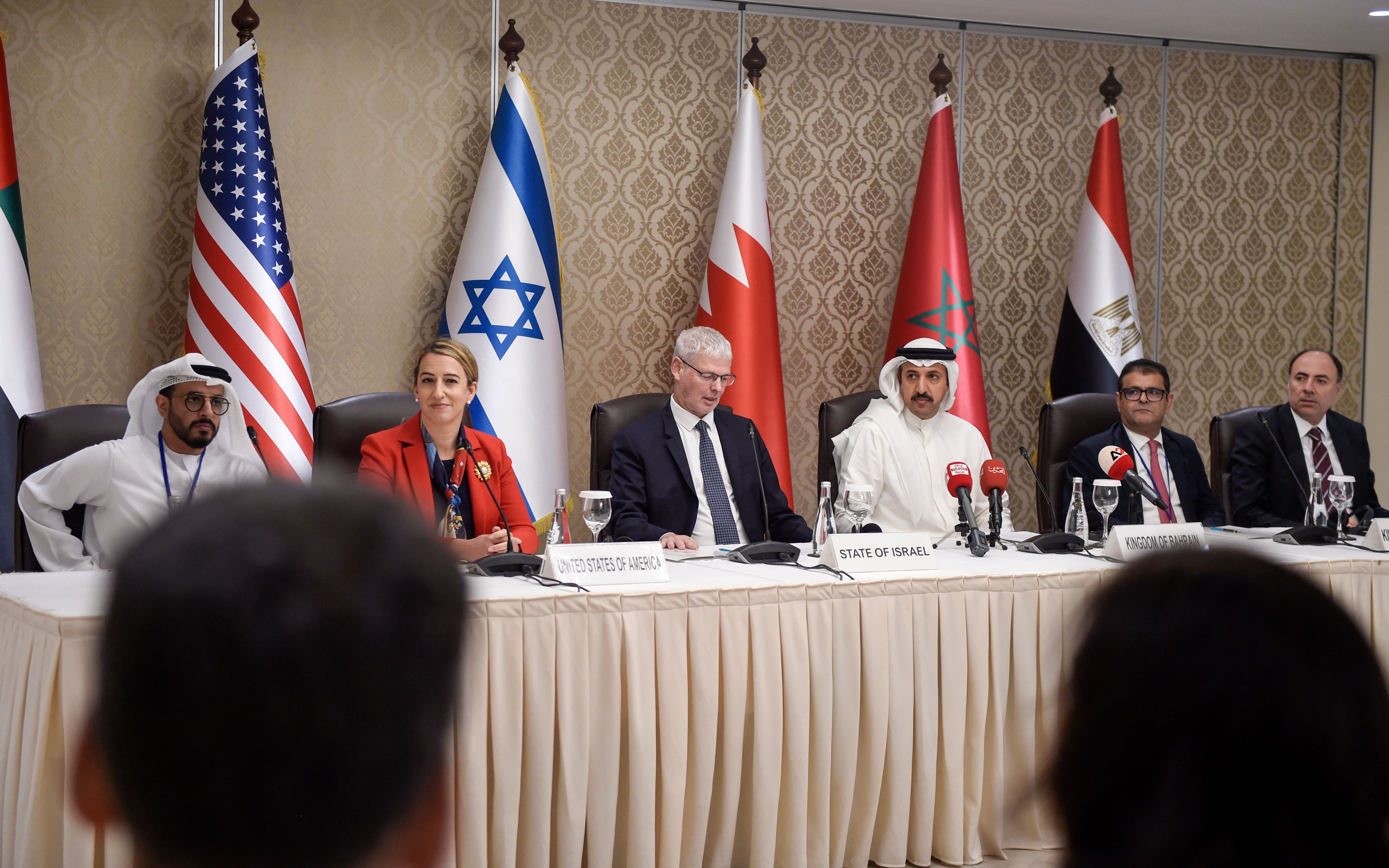
Cooperation via Regional Frameworks
On the regional level, the Mediterranean Action Plan (established in 1975) and the Convention for the Protection of the Mediterranean Sea Against Pollution (Barcelona Convention, adopted in 1976) have enabled Israel to be part, over several decades, of a regional Mediterranean platform that includes countries with which it does not have diplomatic ties. In recent years, several new regional platforms have been created in which Israel is playing a significant role.
The Israeli government currently attributes importance to participating in the Cypriot government's climate change initiative, the Eastern Mediterranean & Middle East Climate Change Initiative (EMME CCI), which was initiated in 2019. This is partly due to Israel's close relations with Cyprus as well as the fact that the initiative is an umbrella under which Israel can cooperate with countries with which it is difficult to conduct bilateral relations. The EMME CCI meeting that took place during COP 27 in Sharm el-Sheikh in November 2022 included the participation of official representatives from Israel and Lebanon — an exceptional development facilitated by the initiative. Israel is interested in advancing regional environmental cooperation through the EMME CCI on issues that can generate interest among various states, for example improving regional meteorological forecasting. The Cypriot-Turkish conflict limits Turkey's involvement in the initiative, and therefore it is not fully inclusive and does not provide a suitable platform to promote Israel-Turkey cooperation.
The EMGF, which was created in 2019 at the joint initiative of Israel and Egypt, facilitates regional discourse and cooperation around natural gas and works to pursue relevant regional opportunities. The forum convenes periodic ministerial meetings, working groups, workshops, and joint research programs. It has received Egyptian support and is turning into a promising framework to advance multilateral cooperation on energy issues and intensify Israel-Egypt relations. Jordan and the Palestinian Authority are also members, as are the U.S. and several European countries, while a few international bodies (among them the EU) serve as observers. The UAE, too, has expressed an interest in joining the forum as an observer, but the Palestinian Authority vetoed it. At this stage, the forum does not include Turkey, Syria, Lebanon, or Libya — due to domestic and geopolitical conflicts — despite their relevance to the natural gas market in the eastern Mediterranean. In its work, the forum endeavors to focus on shared interests and avoid political disagreements. Under the Bennett-Lapid government, the Israeli government sought to broaden the forum's agenda beyond natural gas to include renewable energy.
The Negev Forum — consisting of Egypt, the UAE, Bahrain, Morocco, the U.S., and Israel — is another platform for regional environmental cooperation. In the framework of this forum, working groups were established on, among other topics, energy and food and water security, to which government funding was allocated. Yet, the Negev Forum has no working group dedicated to climate change. Likewise, there are evident disparities in how its members deal with energy and environmental issues. Moreover, the forum does not include Jordan and the Palestinian Authority, and there is a lack of clarity regarding how it will function under the present Israeli government. Beyond the January 2023 meeting of the forum's working groups in the UAE, no additional convenings took place during the first half of the year. Those that were planned were postponed time and time again, due to Israeli-Palestinian tensions.
In addition, Israel participated officially — through its Ministry of Foreign Affairs — in the 2022 Middle East and North Africa Climate Week (MENACW), which took place for the first time in the UAE, under the patronage of the U.N. In 2023, the event will take place in Riyadh and it is not clear yet whether Israel will be allowed by the Saudis to participate. Israel is also a member of the UfM, which constitutes a joint platform for Mediterranean and European states to adopt projects and support initiatives, thereby making them more attractive for external investment by private and public sector entrepreneurs, in fields including water, environment, climate, the blue economy, and energy. However, Israel's involvement in the organization is relatively limited — due to its own prioritization — and is less than that of the Palestinian Authority, which currently holds a deputy secretary general position (for water, environment, and the blue economy).
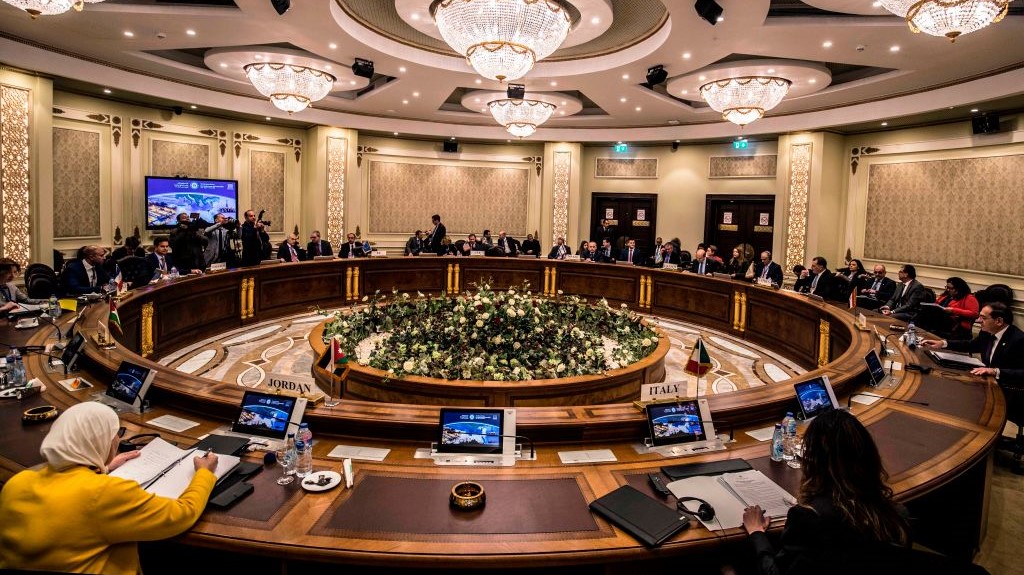
Obstacles to Increasing Regional Environmental Cooperation
A number of obstacles must be overcome to broaden and intensify regional environmental cooperation. These relate to political and geopolitical issues as well as the internal administration in Israel and Arab states.
First and foremost, the Israeli-Palestinian conflict and the hostility that it creates toward Israel in broad swathes of the Arab world significantly limit regional cooperation. This is evident on both the official and unofficial levels. It manifests in a desire to maintain cool relations with Israel, to limit cooperation to a narrow range of fields, and to prevent professionals and experts from advancing joint processes. The intensity of the limitations differs from country to country and in accordance with the level of geopolitical tension between Israel and its neighbors.
Following the establishment of the current Israeli government, these tensions are on the rise. They are evident, for example, in the recurring postponement of the Negev Forum ministerial summit, which was originally set to take place in March 2023 in Morocco. However, such political limitations were also evident under the previous government, although then the trend was positive, toward a cautious and gradual expansion of cooperation. On the unofficial level, it is common in the Arab world for professional unions, academia, and civil society organizations to boycott Israel and reject cooperation with it, sometimes with the quiet encouragement of the authorities and sometimes in contrast to their official stance.
The disparity between agreements and implementation also creates further obstacles. Israel and the Arab states with which it has normalized relations have signed numerous memorandums of understanding, yet most have not been implemented. Beyond political sensitivities, Israeli officials claim that this is also partially due to the political and administrative structures in the Arab states and their administrative management, which creates a lack of sufficient regulation, difficulties in the continuity of relations and processes due to frequent personnel changes, ministerial duplication and a resulting lack of clarity regarding partners and working methods, and a slow work pace.
In this regard, the officials also cited obstacles on the Israeli side: for example, the fact that environmental and climate issues receive low priority by most ministries; insufficient inter-ministerial coordination and cooperation; limited personnel with experience in regional cooperation; lack of allocated financial resources; and a disconnect between Israel’s meticulous regulation in the agricultural sector and high standards to prevent diseases in animals and vegetation. An additional obstacle is the difficulty that Israeli companies face when competing with bigger international firms, both in terms of attractive pricing and responding to the needs of the Arab states, especially in the Gulf, for example vis-à-vis desalination and technology.
Furthermore, on issues relating to the environment and climate, countries perceive matters differently, and in some counties in the region — including Israel — there are prominent interests and agendas that push back on or marginalize environmental issues. Likewise, internal rivalries in the Arab world and the region sometimes limit the potential for cooperation in these domains, as does the desire to focus on "putting out fires" and general emergencies (such as in the field of health), with long-term efforts to address climate change often relegated to secondary importance.
This also affects whether regional frameworks can operate efficiently. Thus, for example, the Negev Forum has no climate group; the EMME CCI and the EMGF generally exclude Turkey due to regional conflicts; and in the UfM it is difficult to reach the required consensus on topics that include a controversial political element. Despite several regional environmental initiatives that are of political importance for Israel, government officials discern therein only limited potential for advancing real cooperation to tackle climate change.
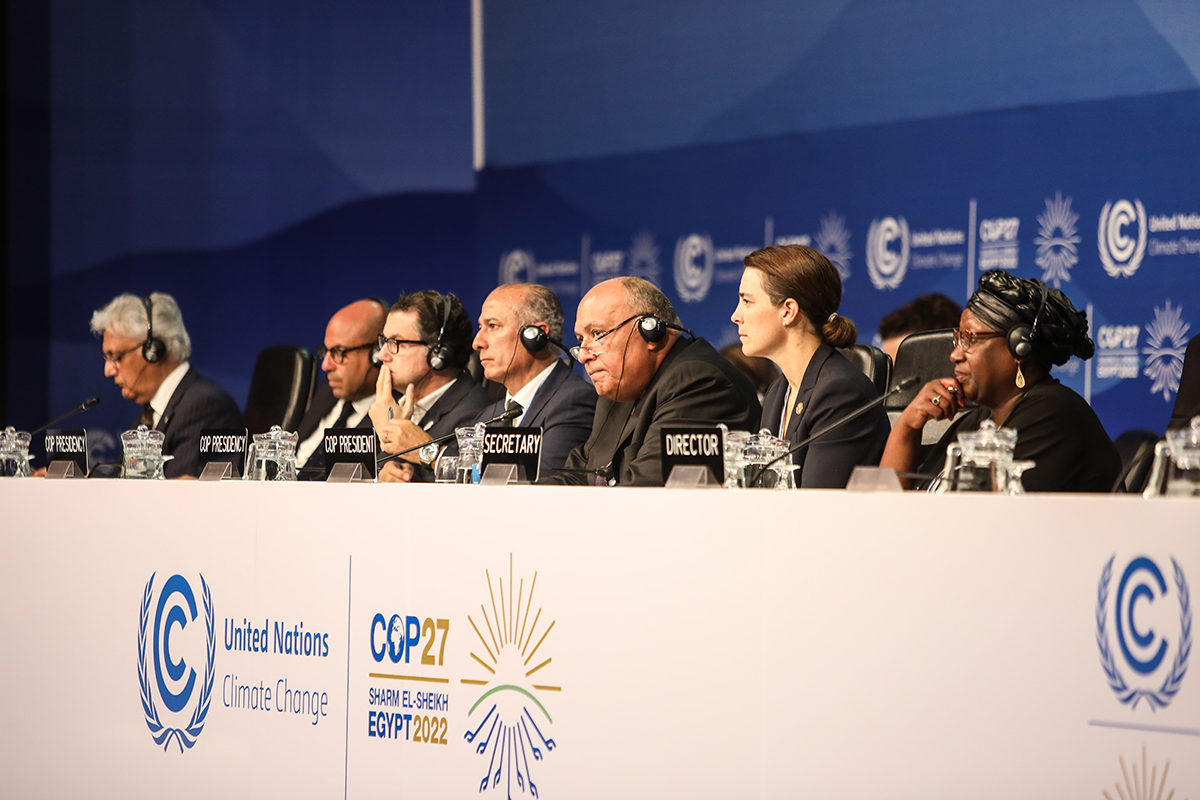
Opportunities to Advance Regional Environmental Cooperation
The Abraham Accords and the establishment of the EMGF offer significant opportunities for Israel to increase regional environmental cooperation with the Arab states. In its first three years, the Abraham Accords created links between Israel and new countries that possess a range of capabilities; led to understandings, agreements, and initiatives; and advanced a significant change in the regional atmosphere. The Negev Forum and the establishment of working groups on relevant topics creates an opportunity for a new channel of environmental action with countries in the region, including Egypt, under American patronage. It can potentially facilitate new joint projects, even though most of the Arab states that are members of the forum at present have tense relations with Israel given the current government’s increasingly extreme statements and actions in East Jerusalem and the Palestinian arena.
The EMGF offers Israel an opportunity for a multilateral channel to both Jordan and the Palestinian Authority, neither of which is a member of the Negev Forum, but mainly enables Israel to strengthen relations with Egypt (as well as the EU) and expand ties to include new areas not related to security. Egypt and Israel play central roles in the EMGF and through its framework promote shared interests in a way that increases the public visibility of relations, strengthens mutual trust, and generates cooperation between ministries that did not previously work together. Egypt’s decision to join the Negev Forum highlighted a positive change in its attitude toward Israel. Exhausting the potential of the EMGF vis-à-vis climate and the environment requires — from the viewpoint of Israeli officials — an increased focus on renewable energy. The EMGF has become even more significant given the war in the Ukraine and the EU's interest in increasing natural gas imports from the eastern Mediterranean, as a partial alternative to Russian supplies.
The EMME CCI holds potential as well, and despite its relatively limited operations (the scope of which is also impacted by political developments in participating countries), it is becoming a successful platform for regional cooperation — aside from Turkey — that puts a clear focus on the climate and the environment. Likewise, it offers opportunities for indirect engagement without recognition between Israel and Lebanon (which may also be replicated in the EMGF in the future).
Climate change creates opportunities for Israel to improve its ties with Arab and Muslim countries with which it does not currently have diplomatic relations, including Saudi Arabia, Qatar, and Oman. Israel has shared environmental interests with these countries on issues like desertification, water shortages, global warming, climate refugees, and food security. Indeed, despite the lack of official relations, media reports suggest some back-channel engagement and knowledge exchange is taking place that could expand in the future. In contacts with these countries, and the Gulf states in general, the Israeli business sector must assume a central role given the great importance accorded to financial interests in the Gulf.
Among the countries with which Israel has diplomatic relations, Israeli officials view Morocco as the one with the greatest potential for climate-related and environmental cooperation. Morocco is relatively well connected to the climate-environmental agenda and aims to become more active in the field. Morocco's position in the Arab world is strong, the country is characterized by tolerance and moderation, its cooperation with Israel is intensifying, and it is interested in being a significant provider of renewable energy to Europe. Morocco and Israel have close ties with the EU and are among its neighbors; this provides both countries with opportunities to obtain funding and carry out tripartite projects with the EU under its patronage (such as the Israel-Morocco-EU water dialogue, launched in March 2023).
Likewise, Israeli officials seek to broaden and deepen environmental cooperation with Turkey, following the successful completion of Israel-Turkey normalization in 2022. The progress made by Turkey in its efforts to normalize relations with the UAE and Egypt opens additional opportunities for new minilateral cooperative endeavors involving Israel and these countries.
Finally, the fact that the COP summits are being held in the region in 2022 and 2023, in Egypt and the UAE respectively, creates significant opportunities for Israel. These summits encourage joint preparatory working processes between various ministries in Israel, some of which were previously not invested in climate change. They also lead countries in the region to attribute greater importance to environmental issues, to invest more funds in addressing them, and to develop around them regional and international cooperation, in which it is feasible for Israel to have a role. Moreover, they give experts, business people, and government representatives from Israel access to broad Arab audiences to present their expertise and establish ties.
The summits also open the door for Israel to become more involved in regional processes and initiatives. Lastly, they enable high-level Israeli visits to the host countries, which sometimes hold diplomatic importance. For example, Prime Minister Netanyahu was invited (together with President Herzog) to COP28, and it will probably be his first official visit to the UAE. However, for Israel's participation in the summits to be professionally meaningful, there is a need for continuous preparation in the preceding months, including initiating contacts, mapping out opportunities, and setting realistic aims. Without extensive preparatory work ahead of the upcoming summit, Israel is unlikely to make any significant achievements there.
In terms of recommendations for the future, Israeli officials suggest the following:
-
Promoting the principle of "regional climate resilience," mainly with regard to water, food and energy security, public health, extreme heat, and the provision of aid to countries experiencing difficulties;
-
Encouraging cooperation with unofficial or semi-official regional elements to bypass political limitations and indirectly advance official cooperation;
-
Increasing the interface between Israeli ambassadors abroad and their counterparts from Arab and Muslim countries, also with the assistance of local foreign ministries, to create channels of contact and establish new projects;
-
Mapping the needs of countries in the region when it comes to climate change and the environment, paying attention to their strengths — from which Israel can learn and benefit — as well as to the areas in which Israeli know-how can benefit its neighbors. This should be done with equality and respect, and not in a patronizing manner;
-
Initiating an annual regional climate conference under the patronage of President Herzog, or through the leadership of a third party;
-
Harnessing the U.S. and the EU to develop and strengthen multilateral regional initiatives concerning climate change and the environment, and to assist Israel in developing bilateral relations with countries in the region through tripartite projects (like the Israel-Morocco-EU water dialogue);
-
Focusing on promoting regional environmental cooperation on key issues that respond to real mutual interests that will equally benefit both Israel and the regional countries involved.
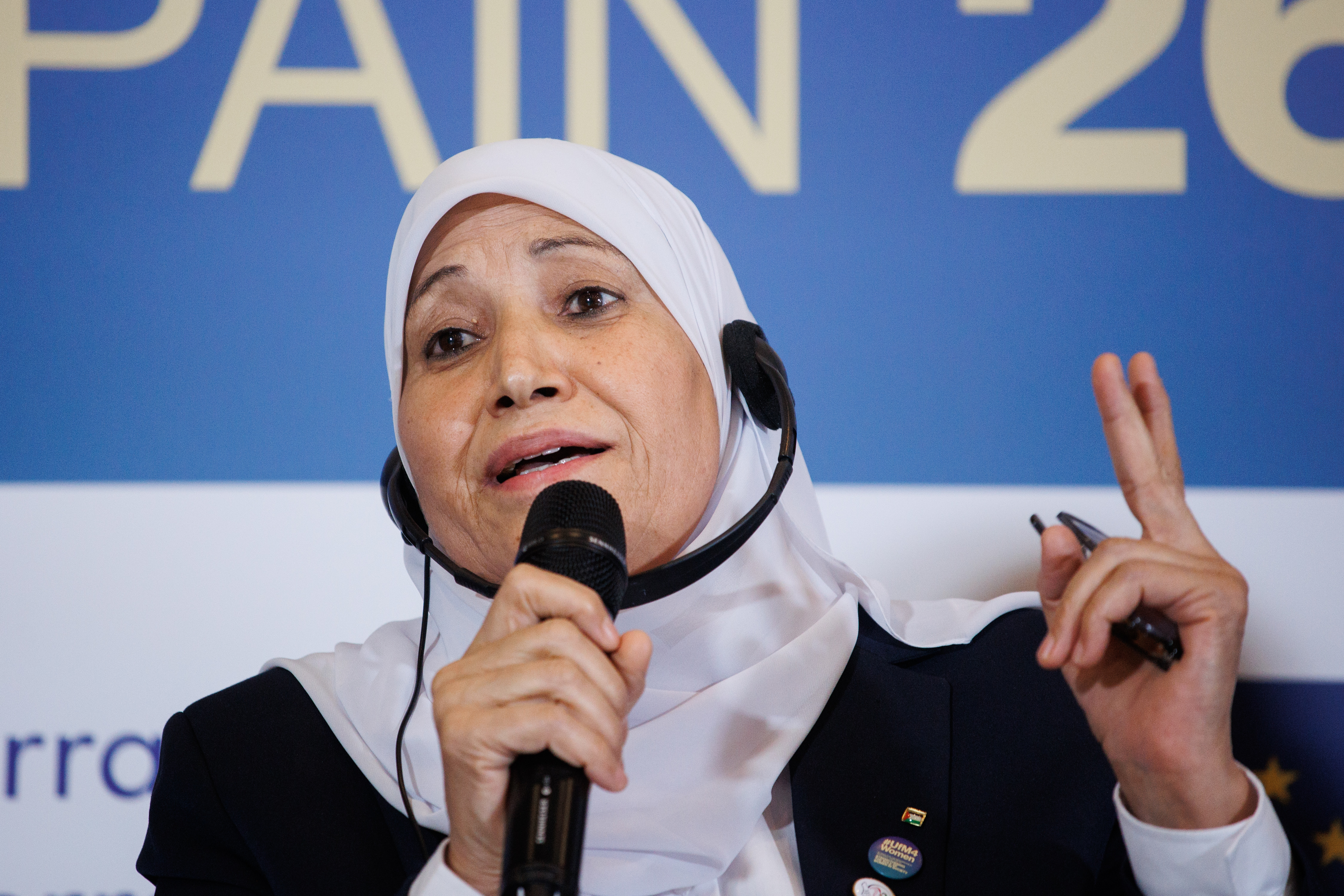
Recommendations for the U.S. and Europe
Environmental challenges are creating new priorities for countries in the Middle East and the Mediterranean and are increasing cross-border cooperation — including between Israel and Arab countries. Such cooperation can assist in tackling climate change through a regional and global lens, and can also foster regional stability, maintain and expand circles of peace and normalization, and increase prosperity and economic development. The international community thus has a clear interest in enhancing regional environmental cooperation between Israel and its Arab and Muslim neighbors. The U.S. and Europe are best positioned to advance this, and can do so via the following pathways:
-
Providing third-party support: The U.S. and Europe should further encourage and enable environmental cooperation between Israel and its neighbors. They can be a formal partner in cooperative endeavors, providing funding, technological assistance, convening support, training and expertise, and serve as a benefactor to ensure success. Third-party involvement is necessary to spark new cooperation and reach agreements, but also to ensure that understandings reached are implemented in a concrete way. Such involvement can increase the motivation of Israel and its neighbors to work together, and can assist the countries involved in overcoming political, bureaucratic, and public opinion obstacles.
-
Focusing on tangible benefits: When seeking to encourage regional environmental cooperation, the U.S. and Europe should focus on initiatives that are likely to bring tangible benefits in the near term. This will make cooperation more likely and legitimate. Selected initiatives should be ones that address the concrete needs of the countries involved and play to their added value, but that also have the potential to make an impact on a global scale, beyond just the region. Relevant issues to engage in could include renewable energy, food security, innovative technologies, sustainable tourism, water desalination and reclamation, public health, and the blue economy.
-
Including the Palestinians: Israelis and Palestinians share a long border and similar air, food, climate, water and ecosystem environmental challenges but do not formally cooperate on most of them, due to the political circumstances. The U.S. and Europe should advance the inclusion of the Palestinians in Israel-Arab cooperative endeavors, with a political horizon of advancing the two-state solution. Messages underscoring the U.S. and European interest in seeing this happen should be conveyed to relevant countries in the region, to make it clear that the U.S. and Europe do not see the advancement of Israel-Arab cooperation as a way to sideline the Palestinian issue. It could also assist in fostering some mutual trust between Israelis and Palestinians, and in creating joint interest in stability and de-escalation. Efforts should be made to ensure that existing regional projects (such as the Israel-Jordan-UAE water-electricity swap deal) also benefit the Palestinians (including those in Gaza), and to include Palestinian interests and needs in new projects that may be developed via mechanisms such as the Negev Forum. An effort should be made to leverage the joint and equal participation of Israel and Palestine in the EMGF and the UfM as well, to increase their cooperation — under a multilateral umbrella — on environmental issues.
-
Encouraging multilateralism and inclusivity: Multilateral initiatives dealing with climate change have already proven their ability to bring rival parties to the same table. This is likely to continue given the forecasts about the increasing negative implications of climate change for the region. The U.S. and Europe need to empower regional and multilateral frameworks, making them more effective, ensuring coordination between them to avoid duplicity of efforts, enhancing their inclusivity by bringing in additional countries (such as enabling Turkish and Lebanese involvement in the EMGF), fostering inter-regional connectivity (by providing observer status to relevant countries from other sub-regions), and enhancing engagement without recognition between rivals (as was the case with the Israel-Lebanon maritime border deal). The U.S. and Europe can also work to ensure that existing regional mechanisms — such as the EMGF and the Negev Forum — develop a specific focus on climate and the environment, and encourage the participation of civil society actors, not just officials.
-
Investing in civil society: In parallel to efforts to enhance cooperation between governments and officials, the U.S. and Europe should also acknowledge the important role that civil society organizations can play in fostering regional environmental cooperation between Israel and its neighbors. Examples of this are already mounting and are having a concrete impact — both content-wise and in terms of fostering some constructive societal engagement. The U.S. and Europe should therefore increase their investment in supporting such cooperation. They can do so by linking environmental activists and professionals from regional countries, providing them opportunities for joint learning, training, strategizing, sharing of best practices and lessons learned, and developing cross-border or regional projects. They can ensure that existing funding schemes related to civil society cooperation in the region also include beneficiaries working on climate change, or seeking to enter the field. Finally, they should elevate environmental cooperation between regional NGOs and think tanks to also advance peace, security, stability, and prosperity.
About the Authors
Dr. Nimrod Goren is the Senior Fellow for Israeli Affairs at the Middle East Institute, President of Mitvim - The Israeli Institute for Regional Foreign Policies, and Co-Founder of Diplomeds - The Council for Mediterranean Diplomacy.
Dr. Ofir Winter is a Senior Researcher at the Institute for National Security Studies and a Lecturer in the Department of Arabic and Islamic Studies, Tel Aviv University.
Dr. Maya Negev is Head of the Health Systems Policy and Administration Program at the School for Public Health, University of Haifa.
About the Paper
This paper was written under the auspice of President Isaac Herzog's Israeli Climate Forum. It includes interviews with government officials, mostly conducted toward the end of the Bennet-Lapid government. Environmental cooperation between Israel and its neighbors in the private sector, academia, and non-governmental organizations are not mapped in this paper. The authors thank Gael Zajdner for his contribution to preparing this paper, and the multiple experts who have provided valuable feedback throughout its preparation.
Additional Photos
Main photo: Rows of solar panels are seen at a Tekno Ray Solar farm on September 13, 2018 in Konya, Turkey. Photo by Chris McGrath/Getty Images.
Contents photo: A view of windmills at the onshore Zaafarana windfarm along the Gulf of Suez on Egypt’s Red Sea coast, about 110 kilometres south of Suez. Photo by KHALED DESOUKI/AFP via Getty Images.












